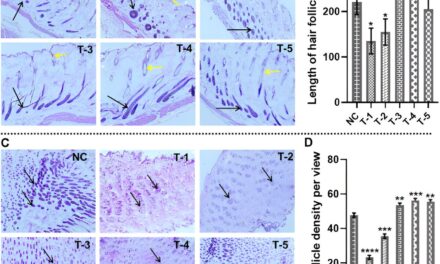Non-nutritive sweeteners, often marketed as healthier alternatives to sugar, may not be as harmless as previously thought. New research from the University of Adelaide has shed light on how artificial sweeteners, such as sucralose (commonly known as Splenda), interact with the body’s sugar handling mechanisms, suggesting they may affect blood glucose control in ways previously underestimated.
While non-nutritive sweeteners are often perceived as a way to curb sugar intake without contributing calories, their long-term impact on metabolic health has been a topic of growing concern. Researchers have long suspected that habitual consumption of these sweeteners could be linked to an increased risk of developing type 2 diabetes. Now, a new two-week preclinical study, published in Nutrients, offers some insights into the biological processes at play.
The study, led by Associate Professor Richard Young from the Adelaide Medical School, sought to explore how sweeteners like sucralose and acesulfame-K might affect the body’s ability to regulate blood sugar. Specifically, the researchers focused on whether these sweeteners interacted with the sweet-sensing pathways in the gut, which are responsible for controlling the absorption of sugar.
To investigate, the research team administered sucralose and acesulfame-K in the drinking water of two groups of mice, one of which had their gut bacteria cleared using antibiotics. The results were striking: mice that consumed the sweeteners absorbed sugar from their intestines at a faster rate compared to those that did not, regardless of whether their gut bacteria had been cleared. This suggests that these sweeteners may directly influence sugar uptake in the intestine.
However, despite the faster absorption of sugar, the study found that the sweeteners did not alter the overall blood sugar response in the mice, raising questions about how these changes in sugar uptake might affect long-term health.
“This proof-of-concept study provides important insights into how non-nutritive sweeteners might interact with the body’s sugar handling mechanisms,” said Dr. Braden Rose, an Early Career Postdoctoral Researcher involved in the study. “While we didn’t see a direct impact on blood sugar levels in this short-term experiment, it’s clear that the high and habitual intake of these sweeteners could affect the way our bodies process sugar.”
These findings contribute to an emerging body of evidence that non-nutritive sweeteners are not metabolically inert, as once believed. Instead, they may influence the body’s ability to manage glucose through mechanisms in the gut, potentially paving the way for further research on their long-term effects on metabolic health.
The research team, which includes experts from the University’s Center for Research Excellence in Translating Nutritional Science to Good Health and Nutrition, plans to extend their investigation into clinical testing. Their ongoing work is part of the Lifelong Health theme at the South Australian Health and Medical Research Institute, and aims to better understand how dietary components, like sweeteners, affect our health over time.
As more studies are conducted, the debate over the safety of non-nutritive sweeteners continues. While they may offer an appealing alternative to sugar, their potential impact on metabolic processes requires further exploration.
For more information, the study Host or the Hosted? Effects of Non-Nutritive Sweeteners on Intestinal and Microbial Mechanisms of Glycemic Control is published in the Nutrients journal.











